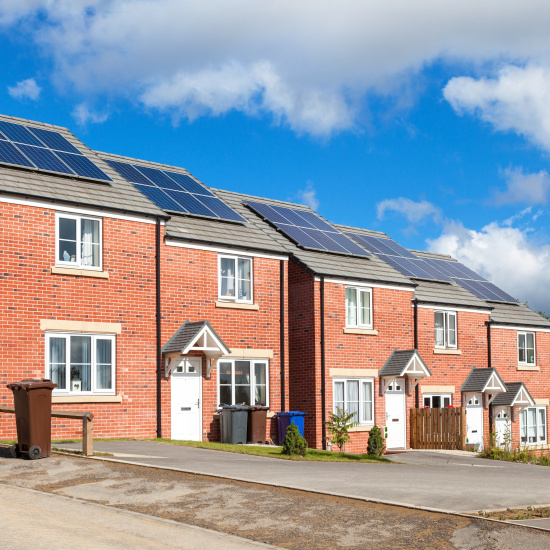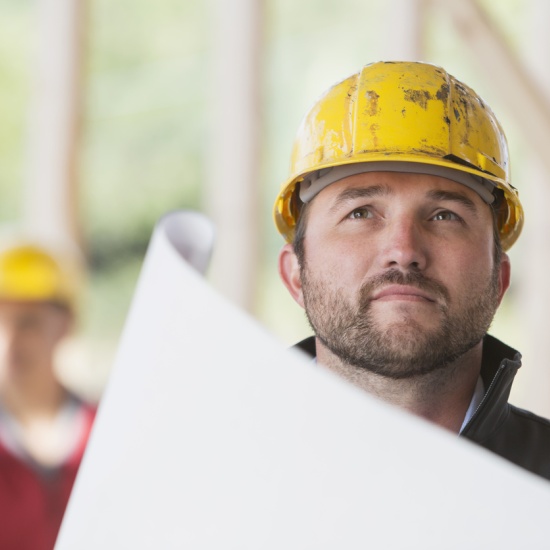Business Opportunity in the Ever-Growing Retrofit Sector
"May you live in interesting times", so the old proverb says, and we are indeed living in interesting times. There are a range of factors, both domestic and international, conflating to impact on the retrofit sector in ways which we have never seen before, writes Dr Ciaran Byrne, Director of National Retrofit, SEAI

These factors include post-Covid recovery; ongoing and intensifying global supply chain issues; a 40-year high in inflation impacting particularly on energy costs, with diesel up over 45% and petrol 26% compared to this time last year; incoming interest rate hikes; and then the issue of labour shortages which seems to be economy-wide. When all these factors are combined, some seasoned commentators are starting to mention the dreaded "recession" word.
Amid such uncertainty and nascent talk of recession, it would be easy to see how businesses might stand back from significant decisions, such as investing to grow the business or entering a new market. However, on 8 February the Government provided certainty, particularly for the domestic retrofit sector, with the launch of the National Residential Retrofit Plan.
The One Stop Shop (OSS) & further Grant Funding
One of the signature elements of the plan is the National Home Energy Scheme which will be delivered through a network of registered One Stop Shops (OSSs). This scheme is for homeowners who would like to upgrade the energy performance of their home in one go to a BER B2 rating and the OSS will manage the customer's journey from start to finish. Registration to become an OSS was opened on 8 February and to date five OSSs have been registered. A further flurry of registrations is expected in the coming weeks. SEAI is working to grow the number of OSSs even further over the coming months and years.
Also announced in February was an increase in funding support under SEAI's existing home energy grants scheme for insulation and heating system upgrades. This is where homeowners can apply for individual grants and carry out home energy upgrades on a phased basis to suit their circumstances. All grants now cover approximately 50% of the cost of the measures, with grants for wall and attic insulation increased to cover up to 80%. This specifically targets homeowners who may not qualify for the fully-funded scheme, or who do not have sufficient personal funding to undertake a complete home upgrade to achieve a B2 rating.
Wall and cavity insulation are relatively inexpensive, quick to do and have a lasting positive impact on the energy performance of the home. This is critical at a time of rapidly-increasing energy prices. Demand has been extraordinary with an increase of over 300% on last year being recorded on the scheme so far this year. What's important though is that this is not a "flash in the pan". It is a clear Government policy providing market certainty.
The National Residential Retrofit Plan
The National Residential Retrofit Plan sets out in detail how Ireland is going to achieve a reduction of 3.5mt CO2 eq by 2030 in the residential sector - this will be by upgrading 500,000 homes to a BER B2 rating and installing 400,000 heat pumps. In addition to providing policy and market certainty which is required to scale the current sector to the level required to deliver on our ambitions, critically, this also has been supported with significant funding.
| Year | 2022 | 2023 | 2024 | 2025 | 2026 | 2027 | 2028 | 2029 | 2030 |
|---|---|---|---|---|---|---|---|---|---|
| Planned Allocation (million) | €202 | €291 | €380 | €496 | €641 | €898 | €1,257 | €1,760 | €2,000 |
Source: Figure 1 - National Development Plan Annual Allocations for Retrofit.
The Plan commits €8bn to domestic retrofit activity between now and 2030, a mere 7.5 years away (Figure 1). The good news is that it does not end there. When we achieve this target in 2030 this amounts to about one third of the housing stock of the country. The remainder then also has to be upgraded to position Ireland to become a net zero carbon emissions society by 2050 as legally required. So, this National Plan provides what any business needs to be able to take those big steps forward - clarity that a market for its services exists, the market is stable and is ideally growing, and funding, €8bn up to 2030.
Right now, we are seeing significant demand and very strong pipelines of business across all SEAI grant-funded domestic retrofit programmes. By mid-year, we have received the same number of grant applications to our programmes, almost 20,000, as for the entire of 2021, and we believe this is only going to go one way. This has been driven in no small part by the war in Ukraine and continuing energy uncertainty, and the inexorable rises in the cost of living.
Industry Opportunities amidst Global Challenges
I would not like to predict future energy prices but when An Taoiseach, Micheál Martin, warns of a "new era" of high energy prices and "rocky territory" in the years ahead, sit up and take note. Current issues such as inflation and supply chain difficulties are, to a large extent, caused by macro-economic factors. Inflation, cost of living and supply chain issues appear to be impacting across the globe. These include haulage strikes in South Korea, mass civil unrest in Bangladesh and strict covid-related lockdowns in international shipping hubs like Shanghai.
Then there are the full impacts from the war in Ukraine which I don't think we've witnessed yet. These are international factors impacting on the national economy and, from the perspective of the retrofit industry, they are largely uncontrollable, or certainly there are only limited controls and mitigations which can be put in place. In terms of labour shortages, this is somewhat more controllable. While there is a shortage of skilled labour right across the construction sector, with the retrofitting sector competing with the new-build sector and vice versa, this is being addressed. Firm plans have been put in place by Solas, the Education and Training Boards (ETBs) and the Department of Further and Higher Education, Research Innovation and Science (DFHERIS) to significantly ramp up the number of training places in the retrofit and green economy sectors.
A further €17m was allocated in 2022 to provide 2,650 places bringing the total number of places up to 4,550 by the end of 2022. In a recent report the Expert Group on Future Skills Needs for the Zero Carbon Economy estimated that the labour demand to meet the domestic retrofit, heat pump and solar pv sectors is 17,400 Full Time Equivalents (FTE). The National Residential Retrofit Plan is a unique opportunity. I hope the combination of clear policy direction by Government, supported with significant funding, is enough to encourage businesses to take the next step and grow their offering to take advantage of this opportunity. SEAI is actively working with prospective contractors and holding regular onboarding workshops to support their journey. For those who have not yet considered retrofitting as a business opportunity, I would strongly encourage them to consider entering this growing sector and start to build skills and capabilities as a domestic retrofit contractor.




